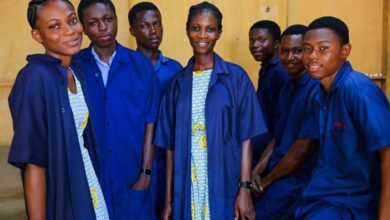Digital Education Tracker Set to Transform Learning Outcomes for Ghanaian Children

Every Ghanaian child deserves more than just a seat in a classroom — they deserve the chance to truly learn, grow, and reach their full potential. That belief has inspired the creation of the Foundational Learning Action Tracker (FLAT), a new digital platform that will monitor how well children across the country are learning, helping ensure that every child acquires strong reading, writing, and numeracy skills.
Developed by the Ministry of Education, with support from UNICEF and the Hempel Foundation, the FLAT system aims to make learning more effective and inclusive, bridging the gap between children in urban centers like Accra and those in remote communities in northern Ghana.
A Tool Designed to Make Learning Meaningful
FLAT helps teachers and education officials track students’ progress in literacy, numeracy, and emotional well-being — key components of a holistic education. It provides a clearer picture of what children know, where they struggle, and how best to help them.
“For too long, some children have gone unnoticed when they fall behind,” said a teacher during the launch event. “This tool allows us to see each learner as an individual and give them the right kind of support.”
For parents, the initiative offers reassurance that their children are not just attending school, but gaining the skills needed to thrive in life and work.
Building Strong Foundations Early
The FLAT initiative supports Ghana’s commitment to ensuring every child can read and count by age 10 — a crucial milestone that determines future academic success. Research consistently shows that early mastery of foundational skills leads to higher school retention, improved performance, and better career prospects.
UNICEF described FLAT as a “game-changer” for Ghana’s education system. “When children learn the basics early, the entire education system becomes stronger,” a UNICEF representative said.
Helping Teachers Teach Better
Teachers stand to gain the most from FLAT. The system provides real-time data on classroom performance, helping them tailor lessons and teaching methods to suit the needs of their pupils. It also enables education authorities to target struggling schools and regions with additional resources and training.
With time, local communities and parents are expected to notice tangible improvements — children reading fluently, understanding mathematics more clearly, and showing greater confidence in the classroom.
Equal Opportunity Through Education
According to the Ministry of Education, the initiative represents a broader national commitment to fairness and opportunity. “Our goal is to make sure that every child, no matter where they live, can learn and succeed,” said a ministry official.
The Hempel Foundation emphasized that strengthening foundational learning is one of the smartest investments any country can make. “If children can read and write well, they can achieve anything,” the Foundation noted.
Turning Policy into Real Change
Ghana has already made strides in expanding access to education through policies such as Free Compulsory Universal Basic Education (FCUBE) and Free SHS. However, challenges remain — particularly in ensuring that all children actually acquire the skills they are being taught.
The introduction of FLAT bridges that gap. By connecting policymakers, teachers, and parents through reliable data, it transforms education from policy on paper into tangible progress in classrooms.
As one headteacher expressed, “This is not just about statistics; it’s about seeing the spark of understanding in a child’s eyes when they finally get it. That’s the true measure of learning.”
With the Foundational Learning Action Tracker, Ghana is taking a bold step toward an education system where every child — from the coastal towns to the northern savannah — can learn, grow, and contribute confidently to the nation’s future.




